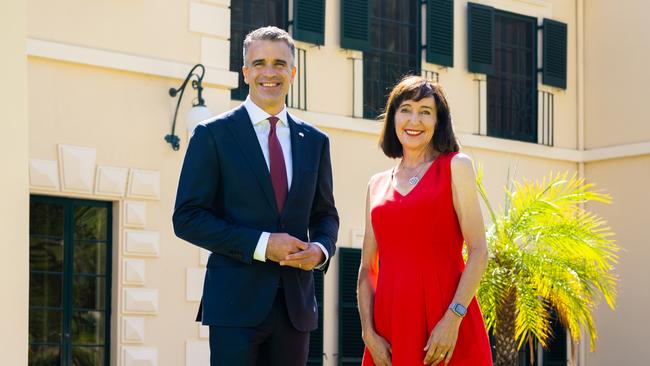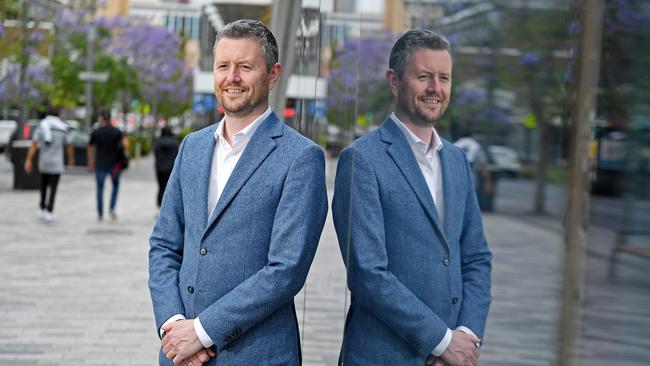The merging of Adelaide’s universities is the biggest test yet for Peter Malinauskas’ South Australian state government
The jungle drums are beating – a hotly anticipated blueprint for merging Adelaide’s unis will soon be released, igniting the biggest reform test yet for Mali’s government, writes Paul Starick.
Opinion
Don't miss out on the headlines from Opinion. Followed categories will be added to My News.
A hotly anticipated blueprint for merging Adelaide’s universities is expected to be released soon, igniting the biggest reform test yet for the first-term Labor government.
Details of a long-awaited university merger proposal, promised more than two years ago by the-then opposition leader Peter Malinauskas, will chart a path for one of the state’s thorniest policy issues.
Speculation is growing about details and timing of any government policy announcement is unclear – but jungle drums are beating.
It is likely the Premier will want to forge a compromise deal with universities – likely Adelaide and UniSA – rather than force a merger commission inquiry – a mechanism outlined in Labor’s policy.
The difficulty will be balancing and meeting two of the policy’s key objectives: creating an internationally significant top 100 university and ensuring all SA public universities remain strong.
The open question is whether a merger can be achieved, creating a growth driver and research powerhouse that achieves economies of scale, without job losses, faculty cuts and other potential roadblocks for university staff and their unions. If the price of compromise is too high and limits the obvious benefits of a merger, then would it be worthwhile?
Does the state government have the stomach for a battle with elements of the higher education sector, particularly those who might normally be considered Labor-friendly?

The Premier and his key ministers want to be a reformist government. Privately and publicly, their rhetoric is focused on achieving things in office – bench warming is considered abhorrent.
One of the most challenging areas of reform in South Australia is the state’s three universities. Mergers have failed twice, in 2012 and 2018. Adelaide and UniSA scuttled merger talks in 2018, jointly declaring they were “unable to reach agreement on the threshold issues and strategic risks”.
Mr Malinauskas might have captured power at the March 19 state election with a health agenda but spending big on government services was more a response to a crisis than a long-considered policy plank.
Rather, the power of education to boost skills and incomes, thus creating employment and aspirational opportunities, is at the heart of this Labor government’s ideology.
This holds true for the Left faction leader and Deputy Premier Susan Close, a former education minister, as much as it does for Mr Malinauskas, Treasurer Stephen Mullighan and others of the dominant Right faction. It is understood Dr Close has been in lock-step with Mr Malinauskas as discussions with the university sector continue.
UniSA vice-chancellor David Lloyd in August, 2020, reignited merger debate when he urged folding Adelaide’s three universities into two as part of major education reform, also involving TAFE. He said there was an opportunity to consider courses, campuses, regional education and pathways from TAFE to universities.

Labor’s university merger policy was revealed by The Advertiser in October, 2020. Mr Malinauskas touted it as the Opposition’s first major economic policy release, saying “the harsh truth is that each of our universities alone are too small and too undercapitalised to make it into the list of top international institutions”.
The policy vows merger talks between Adelaide’s three universities would be triggered by a Labor government, which would effectively compel them to combine if deemed in the state interest.
At the time, Mr Malinauskas declared a university merger a first-term priority for a Labor government. “We believe that there is strong evidence and experience to suggest that a university merger in South Australia has the capacity to deliver outcomes for our state’s economy and the welfare of people. That’s our starting position,” he said.
Labor’s policy document says SA needs an internationally recognised top 100 university to ensure “the highest quality research is funded in this state to drive economic growth”. Another outcome that “any merger must achieve” is that all SA public universities “must remain strong”. This will be the angle used by opponents of any merger to attack and white-ant the process.
Harsh as it might seem, it’s hard to see the argument for greater productivity and economies of scale from a merged university without losing some jobs. Why have duplication, particularly in administrative functions?
University reform is a critical fork in the road for this government. Succeed and, perhaps, public sector reform is on the cards. Failure risks leaving Labor gun shy about productive reform in the state’s interest.





